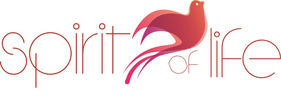 By Karen Whistler When you see someone’s messy house or catch your reflection in a mirror and realize your shirt is stained and you are looking unkempt overall, what are your first thoughts? Whether you struggle to stay on top of the never ending stream of personal logistics or seamlessly keep your space pristine...you need to hear this: How to Keep House While Drowning Or read the transcript available here. How to Keep House While Drowning by KC Davis is a landmark book for developing self-compassion. Last summer, I discovered the book on a friends coffee table and devoured it in one sitting. KC Davis starts with the assumption that care tasks are morally neutral. AND, she proclaims: there is no such thing as lazy, which is fairly mind blowing in a culture where “cleanliness is next to godliness” and sloth is often referred to as a “deadly sin.” Initially, KC’s ideas made me deeply uncomfortable. She speaks about the particular challenge of neurodivergent brains (which includes two of my children), so I got curious and kept reading. One of her core ideas is: “You don’t exist to serve your space, your space exists to serve you.” It comes with “believing you are a person that deserves to function.” The power is in the dignity restored when personal care tasks shift from a moral weight to a functional purpose. Personally, this book opened my eyes to another person’s perspective. I needed to see that my high expectations around cleanliness, organization, food, and family activities can be rigid and not always helpful. The ease in which I can break down and execute the steps for a variety of tasks isn’t natural for everyone. With self-compassion, I also had to acknowledge that formerly “simple” tasks are no longer easy for me given my current limitations. Most importantly: my view wasn’t the only or “right” way. And this extends beyond the home to a wide spectrum of culturally held beliefs that define why people “succeed” or “fail” in life. In addition to loosening the grip on the expectations we have for ourselves and others, KC Davis is also a therapist. She unpacks how what is often labeled as lazy are actually signs of a person struggling. We all need support, accommodation, new skills or resources at different times in our lives. As KC puts it: “Shame is the enemy of functioning.” Since I read her book, I’ve come to approach others--no matter the circumstances--in the context of their struggling. I’ve been able to tangibly sense where compassion replaces judgement in a very deep way. One thing we often repeat in our household: Everyone is trying their best. If someone is showing up in concerning ways, that IS their best right now. It might mean they’re really struggling. How can we have compassionate hearts, and what action can we bring when we notice ourselves or another person might be struggling? We’re likely not going to fix the challenges in anyone’s life, but even bringing kindness can be transformative. Take a listen to the podcast, read her book, or spend time on her website. Ask yourself: In what ways has my view of God been shaped by moralizing effort, performance, and self-sufficiency? How do these views impact the narrative I have of myself and my capacity for self-compassion? How do these views impact my view of others and the narratives I have about their successes or failures? Do I hold beliefs that “moralize” neutral behaviors? In what ways do those beliefs support or impair my ability to see the belovedness of myself and others as divine children of God?
0 Comments
Leave a Reply. |
Sign up for weekly email updates. It is the best way to find out what is happening at Spirit of Life!
Archives
July 2024
Categories |
Spirit of Life Lutheran Church
8730 Phillips Road SE
Port Orchard, WA 98367
E: [email protected]
P: 360.876.5094
8730 Phillips Road SE
Port Orchard, WA 98367
E: [email protected]
P: 360.876.5094

 RSS Feed
RSS Feed